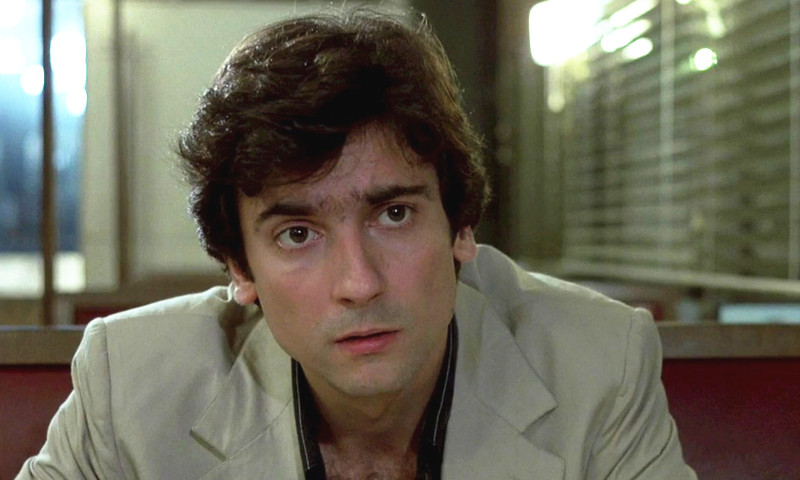
The picaro from the Spanish for ‘rogue’ or ‘rascal’ describes an archetype of hero found in literary classics like Cervantes’ Don Quixote and Voltaire’s Candide and fulfilled in the filmic mainstream by characters like Tom Hanks’ Forrest Gump, that certain brand of travelling everyman to which the world always seems to happen to, and who in good luck and bad always roll with the punches. This is the picaresque, the story of the picaro’s zigzagged flight through the tangled web of fate or their wild ride on fortune’s wheel where the movements of a life are sped along and all seem to turn on happenstance.
The picaro is foremost a kind of emptiness, an innocent, an opportunist, or a jack of trades, in which there is a flexibility and passive kind of self-interest which makes them a sieve through which all the circumstance of the outside world can pass. There is in this kind of constant adaption a free passage for the picaro across the near and far, high and low, a collapse of sociopolitical lines that keep the rest of the world stratified and subdivided, stuck among their own. And it’s in the picaro’s impartial passage that they as a sounding board reveal the follies of their world in the stops along the way.
So here are 10 picaresques to stumble across the world with.
1. Fellini Satyricon (1969)
![]()
By 1969 Fellini had already set a standard for the filmic picaresque with iconic films La Strada (1954), Nights of Cabiria (1957), and La Dolce Vita (1960), but to start with just one of the maestro’s works let’s look at Fellini Satyricon, a “free adaptation” of The Satyricon of Gaius Petronius, the ancient Roman prototype of the entire genre.
Fellini Satyricon follows the comic efforts of vagrants Encolpius (Martin Poetter) and Ascyltus (Hiram Keller) – best friends and enemies – to cheat and steal their way to getting their fill of food, drink, sex, et al. while fighting over possession of their favorite sex slave Giton (Max Born) and try to find a cure for Encolpius’ impotence which has fallen on him like a curse from the god Priapus.
Told with his typical carnivalesque Fellini takes the duo from scene to scene of gross indulgence and debauchery through the high and low (though always vulgar) of Nero’s Rome, from the subterranean apartments of the underclass to the pompous museum where they meet failed poet Eumolpus (Salvo Randone), the resplendent manor ex-slave turned Gatsby figure Trimalchio, (Mario Romagnioli) and the the slave galley of Lichas (Alain Cuny) by which the pair are captured and sold to the highest bidder before ending up in the gladiatorial games, chased, unarmed by the minotaur.
Encolpius and Ascyltus get by on their wits, their ability to adapt and disappear into any social station, seize upon any opportunity that presents itself, and pledge loyalty to nothing and nobody outside their own desires, least of all one another.
2. Modern Times (1936)
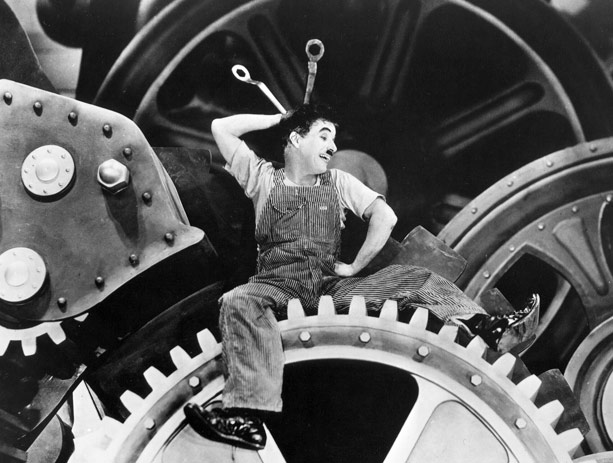
Charlie Chaplin’s Tramp is not always the picaro, and regularly to the contrary fills one or another role for which he’s ill prepared and is driven by some strong moral purpose. But for his down and out desperation, drifting from job to job in Modern Times Chaplin creates a comic-humanist picaro for the great depression that says one in times of poverty can afford to be nothing else.
Chaplin’s Tramp begins the film working on an Electro Steel Corp assembly line, overworked into an automaton that can’t shut off its bolt-fastening even when he steps off the line. Meanwhile the factory hierarchy is cross sectioned to show the boss (Al Ernest Garcia), a man absorbed in reading Tarzan – the fetishization of the very old world his factories work to erase. After being accidentally sucked into a machine at the far end of the assembly line, the Tramp has a total breakdown (or in the name of protest fakes one, we never are so sure how conscious the Tramp is of the chaos he creates) and runs amok the factory throwing switches here and there sabotaging production and fastening anything bolt shaped where he sees it, the large buttons on his coworkers’ overalls and the rear end of a woman passing in the street.
Alongside an orphan girl “the gamin” (Paulette Goddard) the Tramp finds his way into all sorts of trouble, from the hospital to the head of a communist protest rounding the corner at the wrong place and wrong time, to prison for his agitating where he accidentally ingests a salt shaker of cocaine and stops a jailbreak in the ensuing mania, working a night shift at the department store where he lives large in the furniture department, and short disastrous stints as a shipmaker, a mill worker, a waiter and a club singer, each which end of course in some good natured disaster.
3. After Hours (1985)
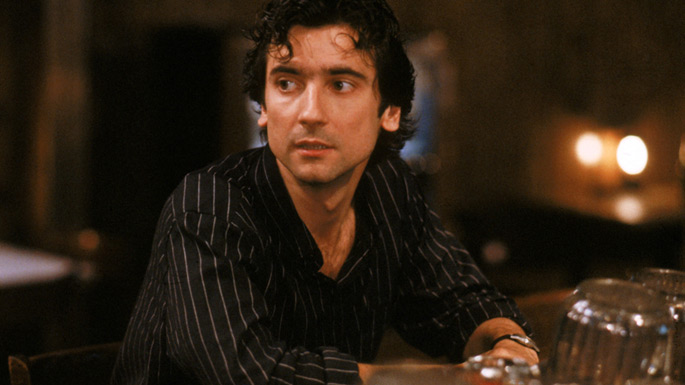
After Hours is a picaresque like a nightmare screwball comedy that follows New York office drone Paul Hackett (Griffin Dunne) breaking free of the boredom and routine of his middle management existence when he meets Marcy (Rosanna Arquette) in a coffee shop one night and after exchanging numbers makes plans to meet up on the pretext of buying a ‘plaster of paris bagel and cream cheese paperweight’ from her artist roommate Kiki (Linda Fiorentino).
But Paul’s night is marred by bad omen and thwarted all the way by seemingly chance accidents that add up to something like a vengeful God or a conspiracy against him that sends Paul running for home. Along the way he meets a properly bizarre procession of SoHo strangers, from punks and S&M freaks to a woman stuck in the swinging sixties (Teri Garr), a bloodthirsty Mr. Softie Ice-Cream truck driver (Catherine O’Hara), Cheech & Chong as bumbling burglars, and a venue doorman straight out of Franz Kafka (his dialogue taken verbatim from “Before The Law”).
The film builds on themes of guilt and sin that show Paul as both the victim of wild circumstance and somehow deserving of his fate as encounter after encounter he slights those willing to help and leaves a growing trail of incrimination.
4. O Lucky Man (1973)
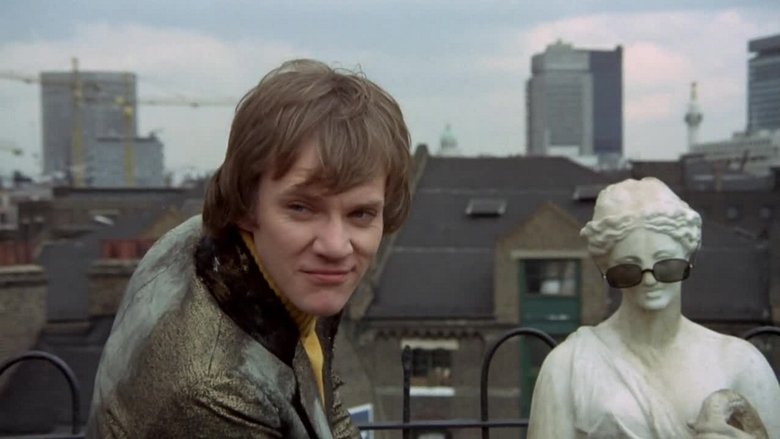
Lindsay Anderson’s 1973 O Lucky Man! continues the adventures of Malcolm McDowell’s Mick Travis, who last appeared in Anderson’s 1968 If… as a radical student turned terrorist, now inconspicuously reformed as a bright eyed society man looking to make himself a career as salesperson for the English Imperial Coffee Company overtaking the Northeast sales sector from a Colonel Kurtzish coffee man who mysteriously abandoned his post.
The film, punctuated by performances of rock pianist Alan Price uses its musical sequences to comment upon the action with satirical songs like “Lucky Man”, “Poor People”, and “Sell Sell” that extol the virtues of ruthlessness with a smile which propel Travis to success.
Travis finds himself not working long at the coffee company before being captured by the military under suspicion of being a communist spy, escaping into a job as medical test subject of the mad Dr. Millar (who is combining human and dinosaur genes and putting human heads on sheep bodies), hitchhiking with Alan Price’s band where he meets the hippie Patricia (Helen Mirren) whose anti-materialist ideals are bolstered on her mogul father Mr. Burgess’ (Ralph Richardson) vast business empire which Travis then finds himself working for selling chemical weapons to a foreign dictator (Arthur Lower) before ending up in prison and reformed into ideals of universal brotherhood and charity which are quickly trampled on by those they seek to help.
5. Midnight Cowboy (1969)
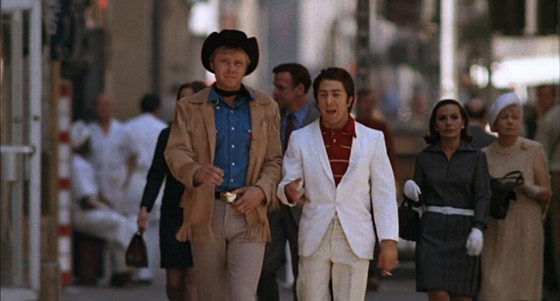
Midnight Cowboy, the 1969 film from John Schlesinger follows wannabe hustler Joe Buck (John Voight) through a tumultuous winter after leaving small town Texas in a new cowboy hat and boots to make it big in New York City.
Only things aren’t so easy as the naive Joe Buck assumes and he quickly finds himself struggling, failing to get money from his clients who mistake his inept advances as simple pickups or take advantage of his good nature to stiff him, and ends up on the street after losing his last dollar and having the hotel foreclose on his stuff. Here he meets Dustin Hoffman’s petty conman Ratso (I’m walkin’ here!!) Rizzo, who presents himself to Buck as an experienced “manager” meaning to take Buck under his wing but ending up sick and dependent on him.
The two make ends barely meet as scavengers, living in a condemned building and stealing the bare necessities. Luck comes and goes in small doses until one night Buck is found by a pair of artists Hansel (Paul Rossilli) and Gret (Warhol superstar Viva) who seem to take his naive cowboy ways as some kind of hipster pose, and is invited to a party where he meets Shirley (Brenda Vaccaro), his first real customer and introduction to a proper clientele, which as things go does not end up lasting.